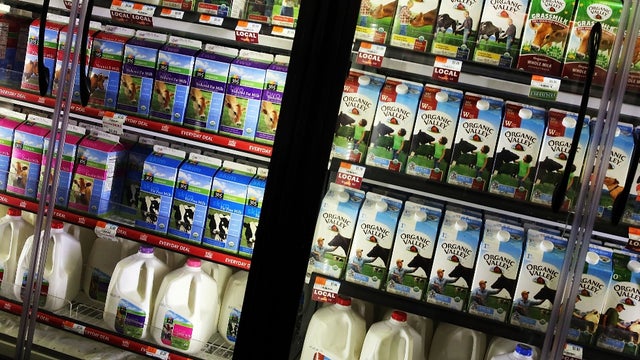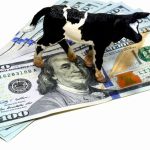
some members of the body chose to continue their quest to restrict Americans from buying anything labeled “milk” that doesn’t come from a cow. It’s an absurd (and unconstitutional) attempt to restrict products from using a common term that consumers understand.
At the request of the dairy industry, Sens. Tammy Baldwin (D-Wis.) and Jim Risch (R-Idaho), recently wrote a letter asking FDA Commissioner Stephen Hahn to ban terms like “coconut milk” and “almond milk.” In fact, the senators want all milk terms banned unless the product being described is cow’s milk. The senators claim that terms like “coconut milk” and “almond milk” are confusing.
Baldwin and Risch may be easily confused, but American consumers are not. They understand that coconut milk doesn’t come from cows, just like they understand that peanut butter is different than butter. And that chickens don’t have fingers. And that you don’t wear cotton candy.
Thankfully for Americans who enjoy all types of milk, the government doesn’t own our language. Under the First Amendment, what matters is whether reasonable consumers are confused by these terms, not what politicians wish those words meant. Since reasonable consumers are not confused by terms like “coconut milk” and “almond milk,” the First Amendment protects their use.
Vegetable milk terms have been around since our nation’s founding, and even for centuries before. As far back as the 15th century, recipes called for the ingredient “almondes mylk.” In 1626, Francis Bacon noted that “there be plants, that have a Milk in them when they are Cut.” And the 18th century Encyclopaedia Britannica stated that “the emulsive liquors of vegetables may be called vegetable milks.” In fact, consumers so appreciated the idea that the term “milk” did not necessarily mean cow’s milk that when American inventor John Callen patented his new antacid in 1818, he named it Milk of Magnesia. None of this appears to have confused anyone.
This lack of consumer confusion is the reason why the FDA has repeatedly rejected Big Dairy’s efforts to punish nondairy milk sellers for using these terms. When you ban the common terms that consumers understand best, consumer confusion doesn’t go down. It goes up.
So now the giant international diary conglomerates have found a group of senators who are willing to feign confusion in order to do their bidding. Of course, no one really thinks Baldwin, Risch, and their other supporters are confused about coconut milk. Instead, what is happening is that they are going to do whatever the giant companies tell them to do, no matter how many consumers they hurt or constitutional provisions they shred.
Big Dairy isn’t limiting itself to Capitol Hill either. With a never-ending army of lobbyists at its disposal, it is also trying to convince state legislatures to ban this truthful speech. Just last week, the Virginia House joined North Carolina and Maryland in passing similar laws. But just like in North Carolina and Maryland, the law will only take effect if 11 states do the same thing, so even if the Virginia Senate were to concur and Virginia’s governor were to sign the bill into law, nothing meaningful would happen for years. This is why Big Dairy is so focused on Baldwin and Risch.
The good news is that established First Amendment precedent already shows that this type of ban is likely to be ruled unconstitutional. But in the process of losing in court, the government will spend millions of tax dollars, after which the government will likely be ordered to pay even more to the challengers’ attorneys. Hopefully, Baldwin and Risch can find a better use for their time and the taxpayers’ money.























